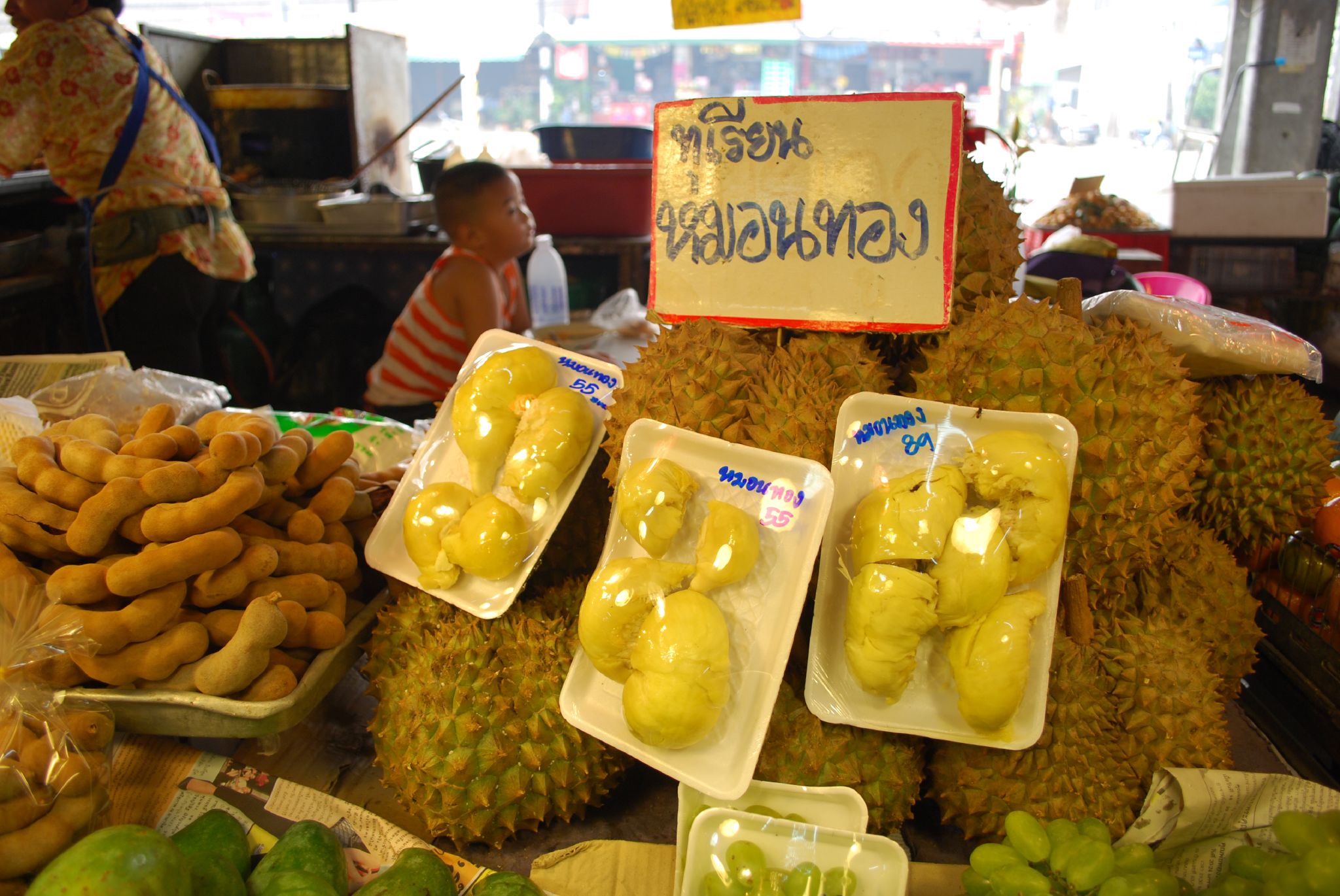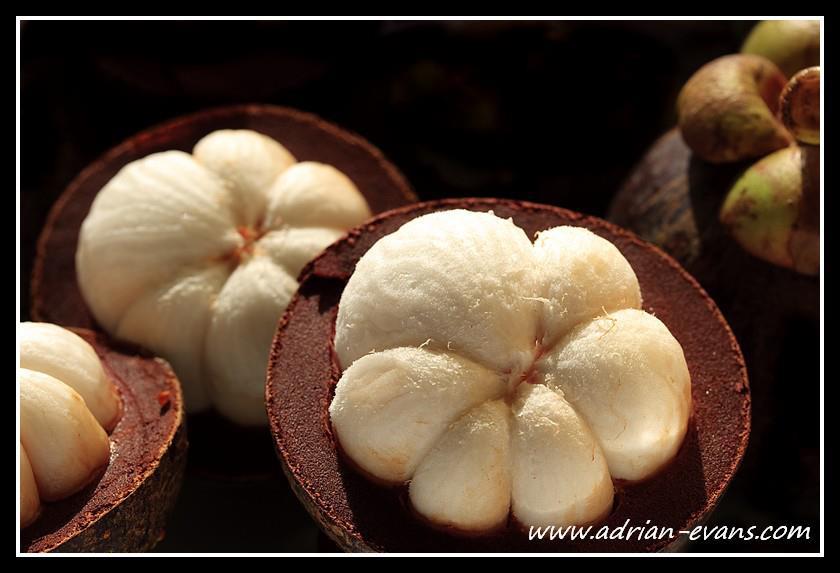The King and Queen of Thai Fruit
In a country so full of fruits of all shapes, colors, sizes, smells, and textures throughout the year it’s easy for the passive observer to forget that Thailand has different growing seasons; different growing seasons in which some very different – and sometimes very iconic – fruits become available.
We find ourselves now into the early days of the rainy season and the cry from fruit trucks in the city is beginning to lift up, “mangkooot, durian monthong”; my two favorite fruits are back.
The king and queen of “polomai”(Thai for fruit). Mangkut or mangkoot is mangosteen, a little purple hand-grenade of a fruit with some of the most sublime segment within its hard shell; she is the queen. Durian is durian, mon thong means golden pillow and this is one of three varieties in Thailand, it is the second most expensive and prized; he is the king.
The king and queen thing comes from the ancient hot and cold (yang and yin) food categories that are still used in Chinese traditional medicine. Durian is classified as hot and as a result could be the cause of flushing and lightheadedness. This works out in reality as it has a huge, huge amount of sugar and I’ve found if gorge on the stuff my face will get hot and reddish.
Hot foods should be eaten with cold foods to maintain balance, or so the wisdom dictates, and into this void steps the cool refreshing goodness of mangosteen. Mangosteen is known to contain powerful antioxidant and anti-inflammatory components and extracts of it are sold in vitamin shops around the world. When eaten with mangosteen, durian will not cause you to get overheated and the king and the queen maintain order in their kingdom.
Durian is a particularly interesting and iconic fruit in Thailand. It’s powerful smell puts a lot of foreigners off before they have ever had a chance to experience its soft, pillowy sweet deliciousness, but it is a national treasure to the Thai people and something they gladly pay an unusually high price (for fruit)for to share and enjoy with their friends and families. Taxi drivers will sometimes refuse access to people toting durian, and some hotels have signs on the door making it clear that durians are not welcome on the premises.
If you haven’t already, I recommend getting past the smell and taking the first bite; you’ll never taste another fruit the same way again. And if you want to know what the other two kinds of durian are called check out some of the stuff on our Thai Food and Cooking Tour!




Durian is my favorite!
There are more or less three kinds that you see in Thailand, monthong is the most common and in the middle as far as perceived quality. I’ll do some follow up material with new info. I recently found an article in the Bangkok Post about a restaurant in China that is selling a durian pizza (monthong of course) with a secret sauce. Apparently it’s a smash hit with the students and profs at the nearby university. I’ve chatted with a few people about this, mostly taxi drivers and the security around my building, and while everyone is a bit shocked at first most people are at least a little curious to try something like that…